A gluten free diet plan for beginners uk, and gluten free health supplements vitamins, is
a gluten free diet plan is a dietary approach that involves avoiding the consumption of gluten, a protein found in wheat, barley, and rye. This diet is primarily followed by individuals with celiac disease, gluten sensitivity, or wheat allergy. Celiac disease is an autoimmune disorder where the ingestion of gluten triggers an immune response that damages the small intestine. Gluten sensitivity refers to individuals who experience adverse symptoms when consuming gluten, but do not have celiac disease or wheat allergy. Wheat allergy is an allergic reaction to proteins found in wheat.
Before embarking on a gluten-free diet, it is crucial to consult a healthcare professional. They can provide accurate diagnosis and guidance based on individual needs. It is important to determine whether you have celiac disease, gluten sensitivity, or wheat allergy, as the management and dietary requirements may differ. A healthcare professional can also help identify any potential nutrient deficiencies that may arise from eliminating gluten-containing foods from your diet.
Summary of Gluten Free Diets Plan
Gluten is a protein found in wheat, barley, and rye that can cause digestive issues for some people.
A gluten-free diet can improve symptoms for those with celiac disease, gluten sensitivity, or wheat allergy.
Foods to avoid on a gluten-free diet include bread, pasta, beer, and many processed foods.
Foods to include in a gluten-free diet are fruits, vegetables, meats, fish, and gluten-free grains like quinoa and rice.
When eating out, it’s important to ask about gluten-free options and cross-contamination risks.

Understanding Gluten Free Diegt Plan and its Effects on the Body
Gluten is a protein composite found in wheat, barley, and rye. It gives dough its elasticity and helps it rise during baking. For individuals with celiac disease, gluten triggers an immune response that damages the lining of the small intestine. This damage can lead to malabsorption of nutrients and various symptoms such as abdominal pain, bloating, diarrhea, and weight loss.
Gluten sensitivity refers to individuals who experience adverse symptoms after consuming gluten but do not have celiac disease or wheat allergy. Symptoms may include digestive issues, fatigue, headaches, joint pain, and skin problems. Wheat allergy is an allergic reaction to proteins found in wheat. Symptoms can range from mild to severe and may include hives, itching, swelling, difficulty breathing, and even anaphylaxis in severe cases.
Benefits of a Gluten-Free Diet
1. Improved digestion and gut health: For individuals with celiac disease or gluten sensitivity, eliminating gluten from the diet can help heal the intestinal lining and improve digestion. This can lead to better nutrient absorption and relief from digestive symptoms such as bloating, gas, and diarrhea.
2. Increased energy levels: Many individuals report increased energy levels after adopting a gluten-free diet. This may be due to improved digestion and nutrient absorption, as well as reduced inflammation in the body.
3. Reduced inflammation: Gluten has been linked to increased inflammation in some individuals. By eliminating gluten from the diet, inflammation levels may decrease, leading to improved overall health and reduced risk of chronic diseases.
4. Improved mental clarity: Some individuals with gluten sensitivity or celiac disease report improved mental clarity and cognitive function after adopting a gluten-free diet. This may be due to reduced inflammation in the brain and improved nutrient absorption.
Foods to Avoid on a Gluten-Free Diet
Wheat
Barley
Rye
Spelt
Kamut
Bulgur
Couscous
Farina
Graham flour
Durum wheat
Semolina
Beer
Bread
Cakes and pies
Cereals and cereal bars
Crackers
Croutons
Pasta
Sauces and gravies
Seasoned rice mixes
Snack foods
Soups
Tortillas
1. Wheat, barley, and rye products: This includes bread, pasta, cereals, cakes, cookies, and other baked goods made with these grains.
2. Processed foods containing gluten: Many processed foods contain hidden sources of gluten, such as sauces, dressings, soups, and processed meats. It is important to read labels carefully and choose certified gluten-free products.
3. Hidden sources of gluten: Gluten can be found in unexpected places such as soy sauce, malt vinegar, some medications, and even certain cosmetics and personal care products. It is important to be vigilant and check ingredient lists or consult with manufacturers if unsure.
Foods to Include in a Gluten Free Diet Plan
1. Fruits and vegetables: These should form the foundation of a gluten-free diet. They are naturally gluten-free and provide essential vitamins, minerals, and fiber.
2. Gluten-free grains and flours: There are many gluten-free grains and flours available, such as rice, quinoa, cornmeal, almond flour, coconut flour, and buckwheat. These can be used as alternatives to wheat-based products.
3. Lean proteins: Include lean meats, poultry, fish, eggs, legumes, and tofu in your gluten-free diet to ensure an adequate intake of protein.
4. Dairy products (if tolerated): Dairy products are naturally gluten-free, but some individuals with celiac disease or gluten sensitivity may also have lactose intolerance. If tolerated, include dairy products such as milk, cheese, and yogurt in your diet for calcium and other essential nutrients.
Gluten Free Diet Plan Meal Planning for Beginners
Meal planning is essential when following a gluten-free diet to ensure a balanced and varied intake of nutrients. Here are some tips for successful meal planning:
1. Plan your meals in advance: Take some time each week to plan your meals and create a shopping list. This will help you stay organized and ensure you have all the necessary ingredients on hand.
2. Focus on whole foods: Choose whole, unprocessed foods as the foundation of your meals. This will help you avoid hidden sources of gluten and ensure a nutrient-dense diet.
3. Experiment with gluten-free recipes: There are numerous gluten-free recipes available online and in cookbooks. Experiment with different recipes to find new favorites and keep your meals interesting.
Sample Gluten Free Diet Meal Plan for a week:
– Breakfast: Gluten-free oatmeal with fresh berries and almond milk.
– Snack: Carrot sticks with hummus.
– Lunch: Quinoa salad with mixed vegetables and grilled chicken.
– Snack: Greek yogurt with sliced almonds.
– Dinner: Grilled salmon with roasted sweet potatoes and steamed broccoli.
– Snack: Apple slices with peanut butter.
Tips for Eating Out on a Gluten Free Diet Plan
Eating out can be challenging when following a gluten-free diet, but with some preparation and communication, it is possible to enjoy dining out safely:
1. Research restaurants and menus beforehand: Look for restaurants that offer gluten-free options or have a dedicated gluten-free menu. Check online reviews and call ahead to confirm their gluten-free practices.
2. Communicate with restaurant staff: Inform your server about your dietary restrictions and ask questions about the ingredients and preparation methods of the dishes you are interested in. It is important to clearly communicate your needs to ensure a safe dining experience.
3. Choose safe menu options: Opt for naturally gluten-free dishes such as grilled meats, fish, salads, and vegetable-based dishes. Avoid fried foods, breaded items, and sauces that may contain gluten.
Gluten Free Diet Snack Ideas
Snacking can be a challenge on a gluten-free diet, but there are plenty of delicious options available:
1. Fresh fruit and vegetables: Snack on fresh fruit like apples, bananas, or berries, or enjoy raw vegetables with hummus or guacamole.
2. Gluten-free crackers and chips: Look for certified gluten-free crackers and chips made from alternative grains like rice, corn, or quinoa.
3. Nuts and seeds: Enjoy a handful of almonds, walnuts, or pumpkin seeds for a satisfying and nutritious snack.
4. Yogurt: Choose plain yogurt or Greek yogurt and add your own toppings like fresh fruit, nuts, or gluten-free granola.
Gluten-Free Baking and Cooking Tips
Baking and cooking without gluten can be challenging at first, but with some practice and knowledge, it becomes easier:
1. Substituting gluten-free flours in recipes: Experiment with gluten-free flours like rice flour, almond flour, coconut flour, or a pre-made gluten-free flour blend. Keep in mind that different flours have different properties, so it may take some trial and error to find the right combination for your recipes.
2. Using gluten-free ingredients in cooking: Use naturally gluten-free ingredients like cornstarch or arrowroot powder as thickeners in sauces and soups. Replace soy sauce with gluten-free tamari or coconut aminos.
3. Tips for successful gluten-free baking: Add xanthan gum or guar gum to gluten-free baked goods to improve texture and prevent crumbling. Be mindful of cross-contamination by using separate utensils, cutting boards, and baking pans for gluten-free items.
Common Misconceptions about Gluten-Free Diets
1. Gluten-free does not necessarily mean healthy: While a gluten-free diet can be healthy when based on whole, unprocessed foods, many gluten-free products on the market are highly processed and may contain added sugars, unhealthy fats, and artificial ingredients. It is important to read labels and choose nutrient-dense options.
2. Gluten-free products may contain more sugar and fat: To compensate for the lack of gluten, some manufacturers add extra sugar, fat, or additives to improve taste and texture. It is important to choose products that are low in added sugars and unhealthy fats.
3. Gluten-free diets are not necessary for everyone: Unless you have celiac disease, gluten sensitivity, or wheat allergy, there is no need to follow a gluten-free diet. Gluten-containing grains like wheat provide important nutrients and can be part of a healthy diet for individuals without gluten-related conditions.
Conclusion and Next Steps for Starting a Gluten-Free Diet Plan
In conclusion, a gluten-free diet is essential for individuals with celiac disease, gluten sensitivity, or wheat allergy. It involves avoiding foods that contain gluten, such as wheat, barley, and rye products. Before starting a gluten-free diet, it is important to consult a healthcare professional for accurate diagnosis and guidance.
By following a gluten-free diet, individuals may experience improved digestion and gut health, increased energy levels, reduced inflammation, and improved mental clarity. However, it is important to be mindful of potential nutrient deficiencies and choose nutrient-dense, whole foods.
When planning meals, focus on fruits, vegetables, gluten-free grains and flours, lean proteins, and dairy products if tolerated. When eating out, research restaurants beforehand, communicate your dietary needs to restaurant staff, and choose safe menu options. For snacking, opt for fresh fruit, gluten-free crackers and chips, nuts and seeds, and yogurt.
When it comes to baking and cooking gluten-free, experiment with different flours and ingredients, and be mindful of cross-contamination. It is also important to be aware of common misconceptions about gluten-free diets, such as assuming all gluten-free products are healthy or necessary for everyone.
In conclusion, a gluten-free diet can be a beneficial dietary approach for individuals with specific gluten-related conditions. Seek professional advice, educate yourself about gluten-free options, and enjoy the journey towards a healthier lifestyle. Resources such as healthcare professionals, support groups, and reputable websites can provide further information and support on your gluten-free journey.
Gluten Free Health Vitamin Supplements
-
Product on sale
 CherryBeetOriginal price was: £19.99.£14.99Current price is: £14.99.
CherryBeetOriginal price was: £19.99.£14.99Current price is: £14.99. -
Product on sale
 MEAL Time Protein ShakesOriginal price was: £29.99.£19.99Current price is: £19.99.
MEAL Time Protein ShakesOriginal price was: £29.99.£19.99Current price is: £19.99. -
Product on sale
 THERMOthin Natural Slimming SupplementOriginal price was: £19.99.£16.99Current price is: £16.99.
THERMOthin Natural Slimming SupplementOriginal price was: £19.99.£16.99Current price is: £16.99. -
Product on sale
 Nattokinase Power ComplexOriginal price was: £29.99.£19.99Current price is: £19.99.
Nattokinase Power ComplexOriginal price was: £29.99.£19.99Current price is: £19.99. -
Product on sale
 Eye Nourish Complex v1Original price was: £19.99.£16.99Current price is: £16.99.
Eye Nourish Complex v1Original price was: £19.99.£16.99Current price is: £16.99. -
Product on sale
 Home Enema Kit Colone CleansingOriginal price was: £29.99.£19.99Current price is: £19.99.
Home Enema Kit Colone CleansingOriginal price was: £29.99.£19.99Current price is: £19.99. -
Product on sale
 Green Coffee Bean Natural Slimming CapsulesOriginal price was: £16.99.£14.99Current price is: £14.99.
Green Coffee Bean Natural Slimming CapsulesOriginal price was: £16.99.£14.99Current price is: £14.99. -
Product on sale
 DIGESTIVE aid Enzymes CapsulesOriginal price was: £19.99.£15.99Current price is: £15.99.
DIGESTIVE aid Enzymes CapsulesOriginal price was: £19.99.£15.99Current price is: £15.99. -
Product on sale
 Omega 3-6-9 Oils Gel CapsulesOriginal price was: £19.99.£12.99Current price is: £12.99.
Omega 3-6-9 Oils Gel CapsulesOriginal price was: £19.99.£12.99Current price is: £12.99.

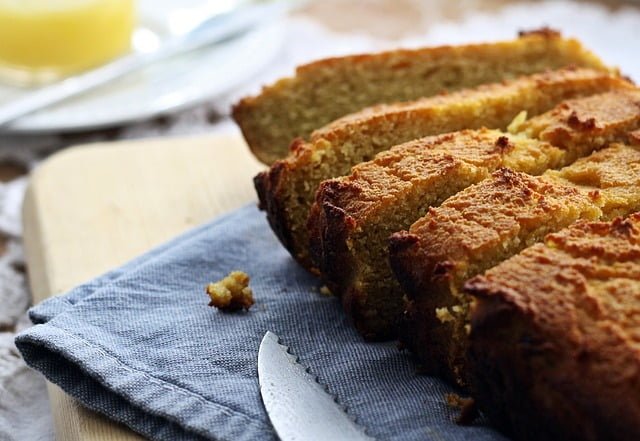

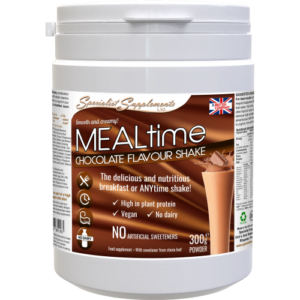
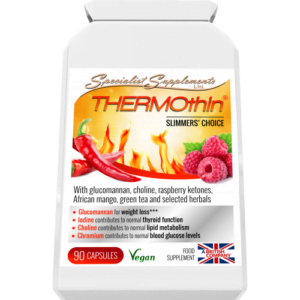

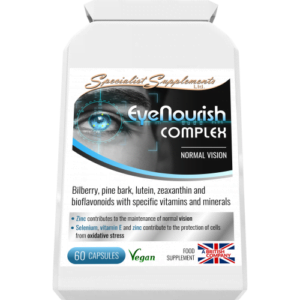

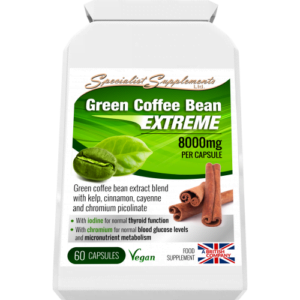
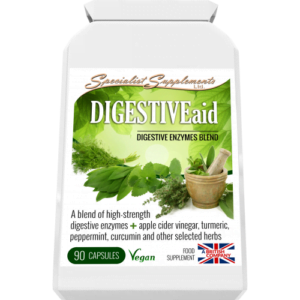


0 Comments